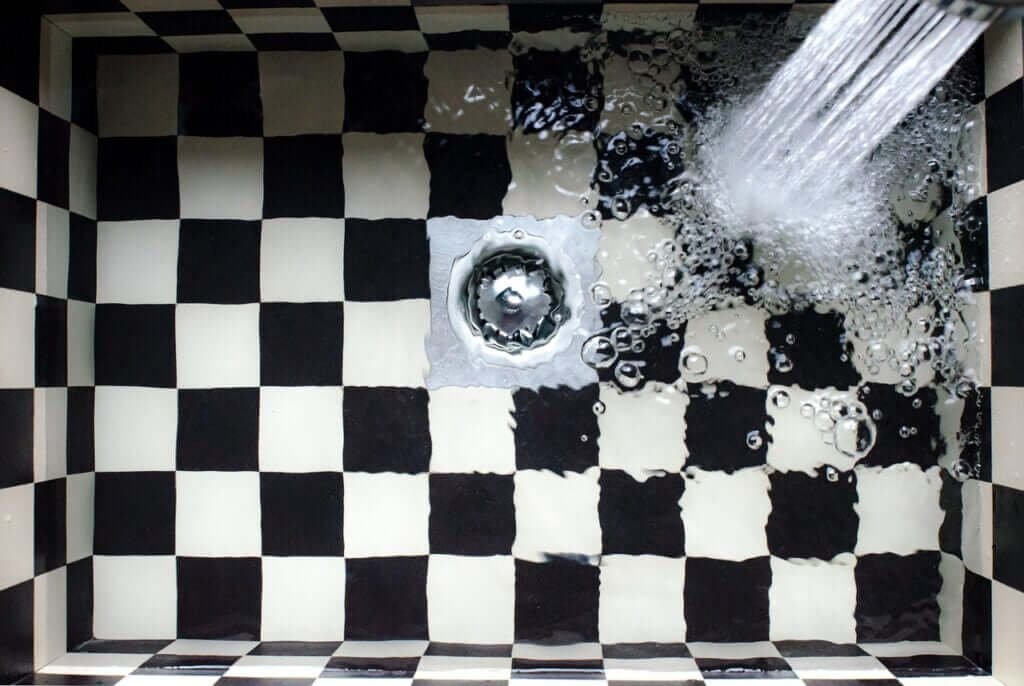Drain Cleaning with Vinegar and Baking Soda

Drains are the unsung heroes of our homes, quietly whisking away wastewater from our kitchens and bathrooms.
However, they’re also prone to clogging, leading to inconvenient and sometimes costly blockages.
From the kitchen sink filled with food particles to the bathroom drain clogged with hair and soap scum, these issues are a common headache for homeowners.
Enter vinegar and baking soda: a dynamic duo in the world of natural cleaning solutions. This pair is not only cost-effective but also environmentally friendly, offering a potent alternative to harsh chemical cleaners.
Utilizing these household staples can transform your approach to drain maintenance, ensuring your drains remain clear without the need for professional intervention.
Table of Contents
Why Drains Get Clogged

Drain blockages in both kitchens and bathrooms stem from a variety of sources. In the kitchen, the culprits often include:
- Food waste: bits of food left on plates or cooking utensils.
- Oil and grease: substances that solidify inside pipes, causing blockages.
- Coffee grounds: which can accumulate and compact in pipes.
Bathroom drains, on the other hand, face challenges from:
- Hair: which can bind with soap scum, forming clogs.
- Product buildup: from soaps, shampoos, and conditioners.
These blockages are not just nuisances; they can lead to slow water drainage, bad odors, and even pipe damage over time.
Regular maintenance is crucial to prevent these issues, and understanding the science behind common cleaning methods can be incredibly helpful.
The Science Behind Vinegar and Baking Soda

The effectiveness of vinegar and baking soda in unclogging drains isn’t just an old wives’ tale; it’s rooted in chemistry.
When combined, these two substances undergo a chemical reaction that produces carbon dioxide and water, which creates a fizzing action. This reaction can help to dislodge blockages in your pipes by:
- Breaking down fatty acids and grease into soap and glycerine, allowing them to wash away more easily.
- Providing mechanical action from the fizzing, which can loosen clogs.
This combination is particularly effective for minor clogs and regular maintenance, ensuring your drains stay clear without the need for harsh chemicals.
For more severe blockages, however, it might be necessary to explore stronger solutions or professional assistance.
Nonetheless, for everyday cleaning and maintenance, vinegar and baking soda are a match made in heaven, offering a safe, effective, and eco-friendly solution to keeping your drains running smoothly.
How to Unclog a Drain with Vinegar and Baking Soda

Unclogging a drain with vinegar and baking soda is a straightforward process that requires a few simple materials:
- Materials Needed:
- 1/2 cup of baking soda
- 1/2 cup of vinegar (white or apple cider)
- Boiling water
- Clean cloth or drain plug
Step-by-Step Instructions:
- Remove Standing Water: If your sink is filled with water, start by removing as much of it as possible.
- Apply Baking Soda: Pour 1/2 cup of baking soda directly into the drain.
- Add Vinegar: Slowly pour 1/2 cup of vinegar into the drain over the baking soda. Learn more about the reaction.
- Cover the Drain: Immediately cover the drain with a clean cloth or drain plug to keep the reaction below the surface, enhancing its effectiveness.
- Wait: Allow the mixture to sit for 30 minutes to an hour.
- Flush with Boiling Water: Boil a pot of water and slowly pour it down the drain.
- Test the Drain: Turn on the tap to see if the water drains smoothly. If the clog persists, repeat the process.
Preventative Measures to Keep Drains Clean
To prevent future clogs and maintain a clean drain:
- Flush with Hot Water Weekly: Pour hot water down the drain weekly to help dissolve and wash away grease and debris.
- Use Drain Strainers: Install drain strainers in your sinks to catch food particles, hair, and other debris. Empty them regularly.
- Regular Cleaning: Incorporate vinegar and baking soda flushes into your monthly cleaning routine to keep drains clear.
What to Avoid Putting Down Your Sink
To minimize the risk of clogs:
- Avoid disposing of grease, oil, and coffee grounds in your sink.
- Dispose of food scraps in the trash or a compost bin, not the sink.
- Use cold water when running the garbage disposal to help solidify fats and oils for easier disposal.
FAQs: Cleaning with Vinegar and Baking Soda

- How often should I clean my drains with vinegar and baking soda? For best results, clean your drains monthly or whenever you notice slow drainage.
- Can I use apple cider vinegar instead of white vinegar? Yes, apple cider vinegar works similarly to white vinegar for this purpose.
- What should I do if the clog persists after treatment? If the clog remains after two or three attempts, consider using a stronger drain cleaner or consult a professional plumber for assistance.
